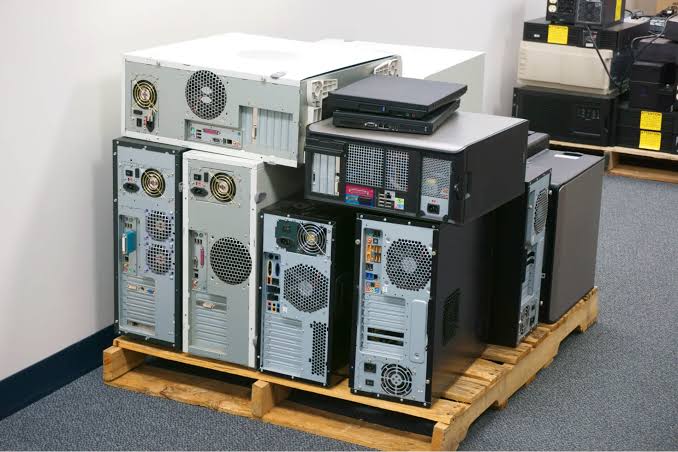In today’s technology-driven world, computers have become indispensable tools in our daily lives, working environments, and academic settings. However, as technology evolves rapidly, devices quickly become obsolete, leading to a pressing issue: how to dispose of them responsibly.
Incorrect disposal of old computers can result in significant environmental harm due to hazardous materials like lead, mercury, and cadmium in electronic devices. According to the Environmental Protection Agency (EPA), e-waste accounts for a significant portion of global waste, making it imperative for individuals to act responsibly.
Key Takeaways
- Proper disposal of computers helps protect the environment.
- Donating, recycling, and repurposing are great options for old computers.
- Data security should be a primary concern before disposal.
- Various organizations and programs facilitate responsible computer recycling.
Ways to Dispose of Old Computers
There are several effective ways to dispose of your old computers that benefit your community and the environment. Understanding what to do with old laptop and desktop computers can substantially reduce e-waste and promote sustainability. Each method has its own set of advantages, and the choice often depends on the condition of the computer and the resources available to you.
Donate Your Old Computer
One of the most impactful ways to dispose of an old computer is to donate it, provided it’s still working. Many organizations, educational institutions, and non-profits can benefit significantly from older but still functional computers. Donating extends the life of your device and supports educational or charitable initiatives.
Websites like DonateTech can help you find worthy recipients, making the process straightforward. For instance, schools and community centers often look for affordable ways to provide technology access to students or members, bridging the digital divide. By donating, you’re reducing e-waste and contributing to social good.
Recycle the Components
If your computer is no longer functional or outdated, recycling its components is a highly effective option. Computer recycling programs are designed to dismantle your device safely, ensuring that harmful materials are appropriately managed. Many electronic manufacturers offer take-back programs where they handle the recycling processes ethically and safely.
Local recycling centers are also equipped to manage and recycle electronic devices without causing environmental harm. For instance, materials like metals, plastics, and glass can be recovered and reused to produce new electronics, reducing the need for raw materials.
Repurpose Parts
If you’re technically inclined, repurposing parts of your old computer can be viable. Components such as hard drives, RAM, and motherboards can often be removed and used to upgrade other devices or as backups. Many online tutorials and forums guide you through the process of creatively repurposing old components.
For example, an old hard drive can be converted into an external storage device, providing additional storage while reducing e-waste.
Ensuring Data Security Before Disposal
Before you donate or recycle your computer, you must ensure that all personal data is securely erased. Data security should always be a top priority, as sensitive information could be retrieved if not correctly handled. Various software tools can help you securely wipe data from your computer, ensuring that it cannot be recovered.
Alternatively, consider physically destroying the hard drive if you prefer a more physical approach. This can be done using a hammer to shatter the drive’s platters or taking it to a professional data destruction service.
Finding and Using Responsible Disposal Programs
Many responsible organizations and initiatives help manage e-waste, making it easier for individuals to dispose of old computers responsibly. Companies like Best Buy and Staples offer recycling services for electronics, ensuring that these items are processed in an environmentally friendly manner.
Participating in these programs helps minimize e-waste and promotes sustainable practices. Additionally, these companies often provide incentives such as discounts or trade-in offers for new electronics when you recycle your old ones with them.
Check for Local E-Waste Events
Many municipalities host e-waste collection events where residents can drop off old electronics, including computers, for proper disposal. Check your local government’s website for information on upcoming events.
These events typically partner with certified e-waste recyclers to ensure that collected electronics are handled in a manner that complies with environmental regulations. Participating in these events contributes to a community-wide effort to manage e-waste responsibly.
Utilize Manufacturer Take-back Programs
Several computer manufacturers have take-back programs designed to recycle old devices. Brands like Apple, Dell, and HP have established programs that make disposal of outdated technology easy and environmentally responsible.
These programs often provide detailed instructions on preparing your device for recycling and where to send it. Some manufacturers even offer free shipping labels, making the process convenient and cost-effective.
Conclusion
Disposing old computers is crucial for protecting the environment, supporting community initiatives, and safeguarding personal data. Whether you donate, recycle, or repurpose, each option is critical in managing e-waste effectively. By taking these steps, we contribute to a healthier planet and a more resourceful society.
Remember, every small action counts regarding reducing e-waste and promoting sustainable practices. By being mindful of how we dispose of our electronic devices, we can significantly impact the environment and our communities.






